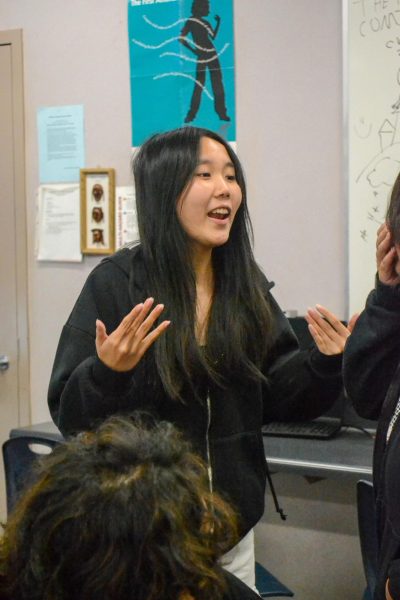We’ve all heard it before: “What exactly do you think you can do with a liberal arts degree?” In the modern American narrative of “success,” a tech entrepreneur is lauded as a visionary savior of the future of society, churning out American jobs and innovations for us all, while a poet shamefully abandons practicality for utter poverty in their pursuit of mere “hobbies,” lacking the intellect and skills to “get a real job.”
This shouldn’t be misconstrued as a dismissal of the critical role that STEM-related professions play in society: advancing fields of vital importance, inventing creative solutions to our problems and revealing the hidden secrets of our world.
Rather, the point here is to underline the similarly integral role of the humanities in the functioning of human society.
As such, an education in the humanities should not only be regarded with the same esteem as STEM education but also be supported by further resources and faculty, ensuring that the diverse talents of today’s student body can be nurtured effectively and distinctly.
An informed understanding of the issue, however, requires the demystification of a commonly held view about these two fields. Humanities and STEM are not completely distinct areas of study made for different “types” of people. Rather, these fields should be viewed as complementary to the other, allowing everyone to gain a nuanced understanding of the world, not of absolutes but of complexity, a range of colors rather than black and white.
“It is precisely because science is so powerful that we need the humanities now more than ever,” Scientific American writer John Horgan said. “In science, mathematics and engineering classes, you’re given facts, answers, knowledge, truth. The humanities give you uncertainty, doubt, skepticism.”
However, the reality of the current academic landscape is that a noticeable preference is given to the field of STEM, which often weighs on the minds of prospective humanities students.
“I think that humanities majors teach you high-demand skills like communication that may not be as emphasized in STEM,” senior Sabrina Tang said. “However, there is definitely pressure from many members of the community to go into STEM rather than humanities, which makes me hesitate.”
Supporters of STEM education argue that fields in science provide a more financially stable and clear career path in a constantly changing world. To an extent, they wouldn’t be incorrect.
In general terms, liberal arts degrees offer a less clear “next step” for prospective graduates. For many students, however, a pre-set career path is neither necessary nor desired. Students are not exact replicas of one another; as such, all don’t necessarily desire a set career path.
This unnecessary debate over the “better field” stems from a fundamental flaw in our educational system: the rigid division of academic disciplines. While this specialization into individual fields was once thought to be the epitome of educational advancement, it increasingly appears inept for 21st-century needs.
According to a report published in the National Academies Press, employers value graduates who have both technical depth in a given discipline and cross-cutting 21st-century’ skills and knowledge, such as critical thinking, communications skills, the ability to work well in teams, ethical reasoning and creativity.
This reveals the necessity of the revitalization of the humanities and a more integrated approach to education. Northwood’s educational philosophy, in many aspects, embodies this approach with the Integrated Sciences, Humanities and FORCE programs all employing an interdisciplinary approach that better prepares students to address modern issues.
Institutions of higher education should similarly adopt an integrative approach towards both humanities and STEM education. Further, colleges must clearly highlight the benefits of a liberal arts degree and concurrently reinvest resources into this critical field.
The job of educational institutions is to prepare their students to succeed in whatever they pursue. In the continuously evolving demands of modern society, education in the sciences alone often leaves students ill-equipped; a complementary humanities education is essential for a holistic approach.
By implementing such reforms and investments, they can ensure that colleges continue to prepare students for their futures, whatever that may look like.

























































